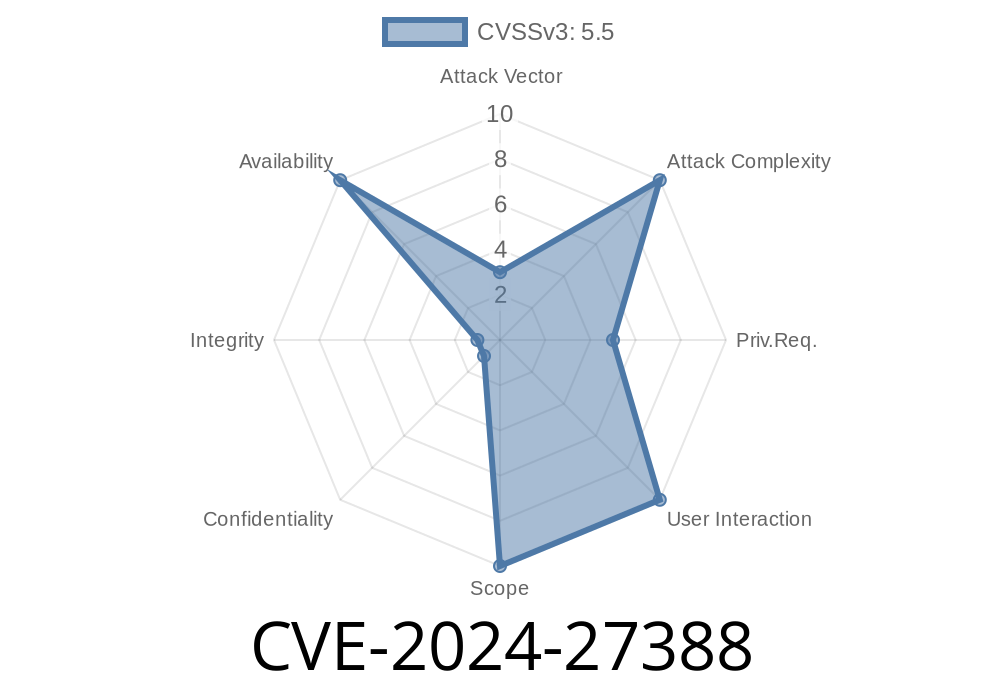In early 2024, a new security issue was discovered and fixed in the Linux kernel’s SUNRPC subsystem. This bug, now recognized as CVE-2024-27388, was a memory leak in the GSS (Generic Security Services) component of the kernel’s remote procedure call (RPC) code.
1. What Is CVE-2024-27388?
CVE-2024-27388 refers to a memory leak in the SUNRPC code, specifically in the function gssx_dec_option_array. This function handles decoding security options for RPC authentication. The issue? In some error paths, memory used for credentials or for storing option array data wasn’t properly released, meaning the kernel would “leak” memory. Over time, this could cause a system to run out of RAM or behave unpredictably.
2. Some Context: The Problematic Code
In the Linux kernel, when allocating memory within a function, it’s critical EVERY possible exit path properly frees up what it took. Otherwise, over time, the kernel can run low on memory even if nothing else is “wrong.”
Here’s a simplified version of the code _before the fix_
struct gssx_option *oa;
struct gssx_cred *creds;
oa = kmalloc(sizeof(*oa), GFP_KERNEL);
if (!oa)
return -ENOMEM;
creds = kmalloc(sizeof(*creds), GFP_KERNEL);
if (!creds)
return -ENOMEM;
// ...do stuff...
if (error) {
// Not freeing 'creds' or 'oa' here!
return error;
}
If something went wrong after allocating oa and creds, the function just returned without freeing the memory—this is the memory leak.
3. How the Vulnerability Was Fixed
The fix is straightforward: make sure you free every piece of memory you allocated if an error happens. Here’s what the fix looked like (abridged):
oa = kmalloc(sizeof(*oa), GFP_KERNEL);
if (!oa)
return -ENOMEM;
creds = kmalloc(sizeof(*creds), GFP_KERNEL);
if (!creds) {
kfree(oa);
return -ENOMEM;
}
// ...do stuff...
if (error) {
kfree(creds);
kfree(oa);
return error;
}
Now, if an error occurs at any stage after allocation, the code responsibly frees previously allocated memory, preventing leaks.
4. Why Does This Matter?
- System Stability: Memory leaks in kernel code don’t usually pose a direct security risk, but over time, repeated failures can exhaust system RAM, possibly leading to hangs, crashes, or degraded performance.
- Security: If attackers can trigger these code paths repeatedly, they might deliberately exhaust system memory, causing denial of service (DoS).
- Trust: It’s expected that kernel code is especially careful with memory – even “minor” leaks are treated seriously.
5. Exploit Scenario
This memory leak is not a traditional RCE or privilege escalation. But, if an attacker (or buggy software) can trigger SUNRPC authentication requests that fail in the error paths often enough, system RAM will eventually get consumed. This could result in:
System instability, requiring a reboot
That’s why even “just” a memory leak gets a CVE: because in the world of low-level kernel software, resource exhaustion is a real attack vector.
6. References
- CVE record: CVE-2024-27388
Upstream Fix (Kernel Patch):
- commit on kernel.org
- LKML Patch Discussion
- Linux SUNRPC subsystem: Kernel documentation
7. Conclusion
CVE-2024-27388 is a good example of why small bugs in core kernel code matter. Even non-critical issues like memory leaks can lead to bigger system-level problems, and once discovered, are quickly patched for the good of all Linux users. If you’re running a kernel version from early 2024 or before, apply updates to get the latest fixes.
*Feel free to share your questions or thoughts about kernel security below!*
Timeline
Published on: 05/01/2024 13:15:51 UTC
Last modified on: 01/14/2025 14:56:08 UTC
